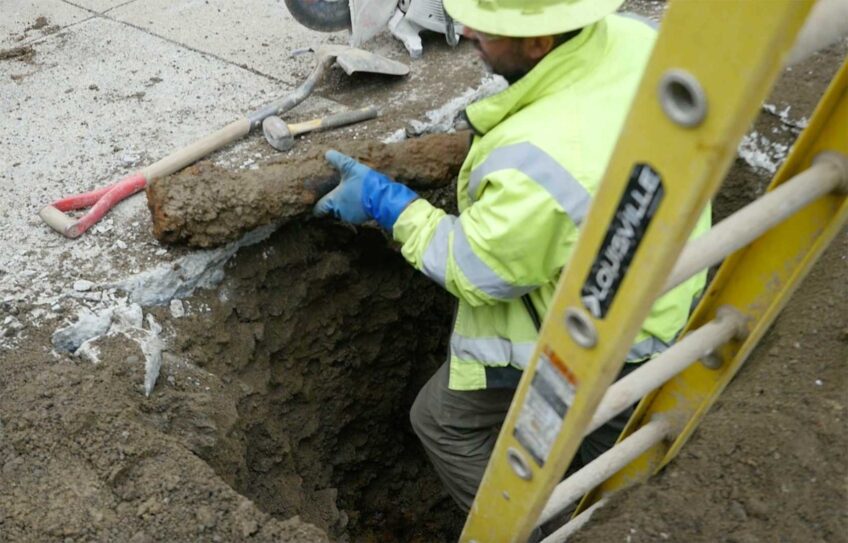The U.S. Department of Education’s Office for Civil Rights has launched an investigation into complaints that Boston’s school closing plans discriminate against black and Latino students and parents.
In a Feb. 15 letter, Donna Russell, an attorney in the department’s Office of Civil Rights, confirmed that an investigation has been opened while cautioning that the investigation itself should not imply that the department agrees with the merits of the case. Russell said the office would act as a neutral fact-finder during the investigation, collecting and analyzing evidence from the complainants and the school district.
The federal complaint was filed on Jan. 25, 2011 by the Black Educators’ Alliance of Massachusetts (BEAM) and the Lawyers’ Committee for Civil Rights Under Law of the Boston Bar Association (LCCR). The complaint was filed in response to Boston Public Schools’ (BPS) “Redesign and Reinvest” plan, which will shut down or merge 18 schools in an attempt to narrow the district’s $63 million deficit.
The majority of these schools, however, are located in minority neighborhoods in Mattapan, Dorchester and Roxbury as compared to schools serving higher percentages of white students in areas such as West Roxbury, Roslindale and Brighton.
The complaint alleges that this plan disproportionately impacts black and Latino students. Of affected students, 46 percent will be black, 44 percent Latino, and just 5 percent white — a skewed representation of the district’s actual demographics, in which 36 percent are black, 41 percent Latino and 13 percent white.
Led by BPS Superintendent Carol Johnson, the Redesign and Reinvest plan was passed by the Boston School Committee on Dec. 15, 2010 in a unanimous vote. According to the BPS website, the plan was devised as one of the “fundamental, structural changes” to cope with the economic recession and a staggering budget deficit.
Throughout the city, the district has 5,600 empty classroom seats, which it says drains millions of dollars each year. Downsizing will eliminate these vacancies, saving up to $10 million, school committee members said.
According to surveys BPS conducted last summer the most important factors of a high-quality school for parents and students are academic options, like electives, advanced placement programs, special education and after-school programs. And BPS insists its decision to close certain schools was based on these criteria gathered from parents, students and community groups.
In a statement, Superintendent Johnson said, “the truth is, the schools slated for closure were selected because they are among the lowest chosen by families, have been struggling academically, or are in facilities that are not up to par.”
But BEAM is not satisfied. “Historically, disproportionate numbers of school closings have occurred in the predominantly black neighborhoods of the city,” said BEAM President Nora Toney. “BEAM has consistently raised serious questions of equity and fairness during each school closing process. The school closings have a profound impact on our students, families and community, creating constant disruption, instability and uncertainty while failing to provide the quality schools promised by the district.”
“We understand there must be critical decisions made to address the budget and underperformance of our schools, but those decisions must be made using a process that is fair and equitable so that all students benefit,” Toney continued.
In the wake of this investigation, Superintendent Johnson is holding her ground. “Frankly, it would be more appropriate for us to be questioned of wrongdoing had we chosen to maintain the status quo,” she said in a published report. “We look forward to working with the Office of Civil Rights as it conducts this inquiry, and as we move ahead in our plan to accelerate achievement for all students.”
“Furthermore,” she added, “we are expanding choices in higher-performing schools and turning around underperforming schools in the very communities in question. We would be doing a great disservice to continue to serve young people in these schools when we have better options available.”
But these explanations are not sufficient for LCCR staff attorney Rahsaan Hall. “We are not suggesting that the district continue to blindly pour money into schools that have been identified as failing,” she said. “However, we are concerned that the burden of making these improvements overwhelmingly falls on the backs of black and brown children in the city.”
Material from the Associated Press and other published articles contributed to this report.

![Banner [Virtual] Art Gallery](https://baystatebanner.com/wp-content/uploads/2024/05/PFW_3-150x150.jpg)




